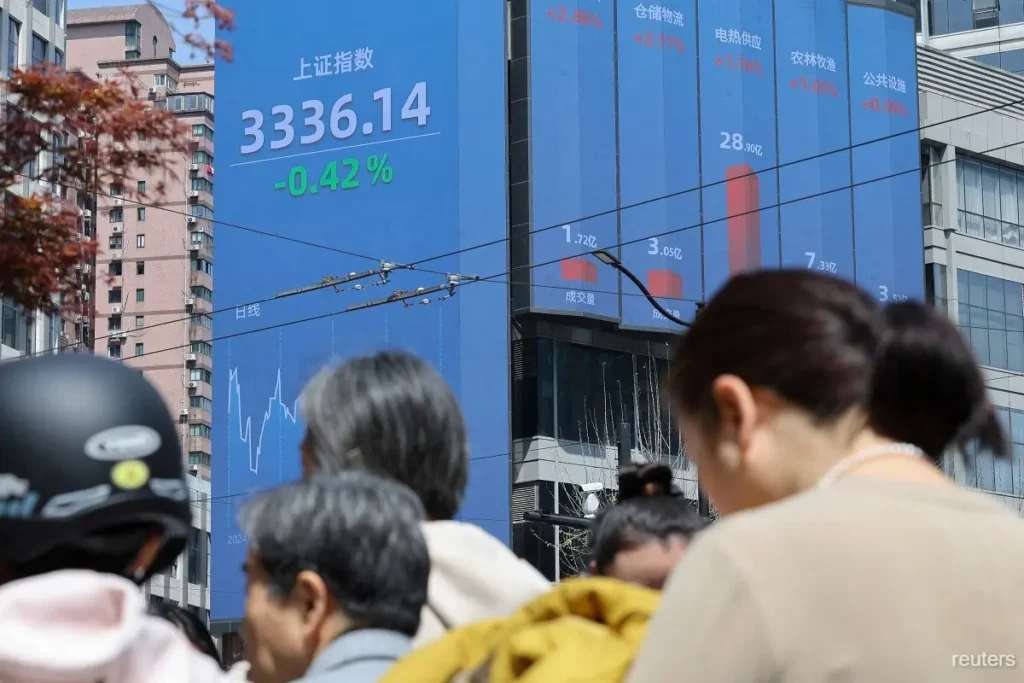- Web
- Feb 05, 2026
Chinese investors brace for ‘ugly’ Monday on US tariff retaliation
-

- Web Desk Karachi
- Apr 07, 2025

BEIJING, CHINA: China investors are bracing for a grim Monday as the nation’s markets return from an extended weekend and factor in its retaliation to US tariffs.
A gauge of Chinese stocks listed in the US plunged 8.9 percent on Friday, the most since October 2022, amid global market turmoil after Beijing announced 34 percent tariffs on all imports from the US. That came during a holiday for Chinese and Hong Kong equities.
A fall of similar magnitude in the local shares could put multiple Chinese equity gauges – such as this year’s top major global performer, the Hang Seng China Enterprises Index – into a technical correction, and in some cases close to a bear market. That would end a nascent recovery in the country’s assets, unless mainland-based investors and bargain hunters step in to cap the slide, reported Bloomberg.
The quick retaliation by China, following US President Donald Trump unleashing the steepest increase in tariff in a century last week, has raised the odds of a global recession. The heavy selloff in US-listed Chinese stocks also reflected fears of further tit-for-tat responses between the world’s top two economies.
“It will be an ugly start on Monday,” which will be a buying opportunity for me,” said Xin-Yao Ng, a fund manager at Aberdeen investments. “Some estimates suggest tariff wars can bring down China’s GDP growth by 2 percent points, but the government will negate that pain with stimulus and trade deals with non-US countries in the course.”
EU seeks unity in first strike back at Trump tariffs
Goldman Sachs Group Inc. trimmed its 12-month targets for Chinese equity indexes in a report on Sunday. The MSCI China Index target was cut to 81 from 85, while the CSI 300 Index outlook was lowered to 4,500 from 4,700 over the same time frame, analysts said.
The yuan will also be in focus as analysts have long been saying Beijing may weaken the currency to boost exports and blunt the impact of higher US tariffs. The yuan slid to the weakest level since February in onshore trading following Trump’s trade tariff announcement.
On Saturday, the state-owned Xinhua News Agency reported Beijing will continue to take ‘resolute measures’ to defend its economy and safeguard its sovereignty, security and other interests.
So far this year, Chinese stocks have shown resilience despite rising trade tensions, driven by optimism about the country’s advancement in artificial intelligence and bets that external pressure will prompt policymakers to increase economic support.
China’s response also starkly contrasts with other Asian nations’ efforts to accommodate Trump’s demand rather than make counter moves. Vietnam, Cambodia, and Indonesia have said in recent days that they’re open to negotiations, while Singapore said it didn’t plan to strike back. India is working toward a possible bilateral trade deep to dampen the blow.




